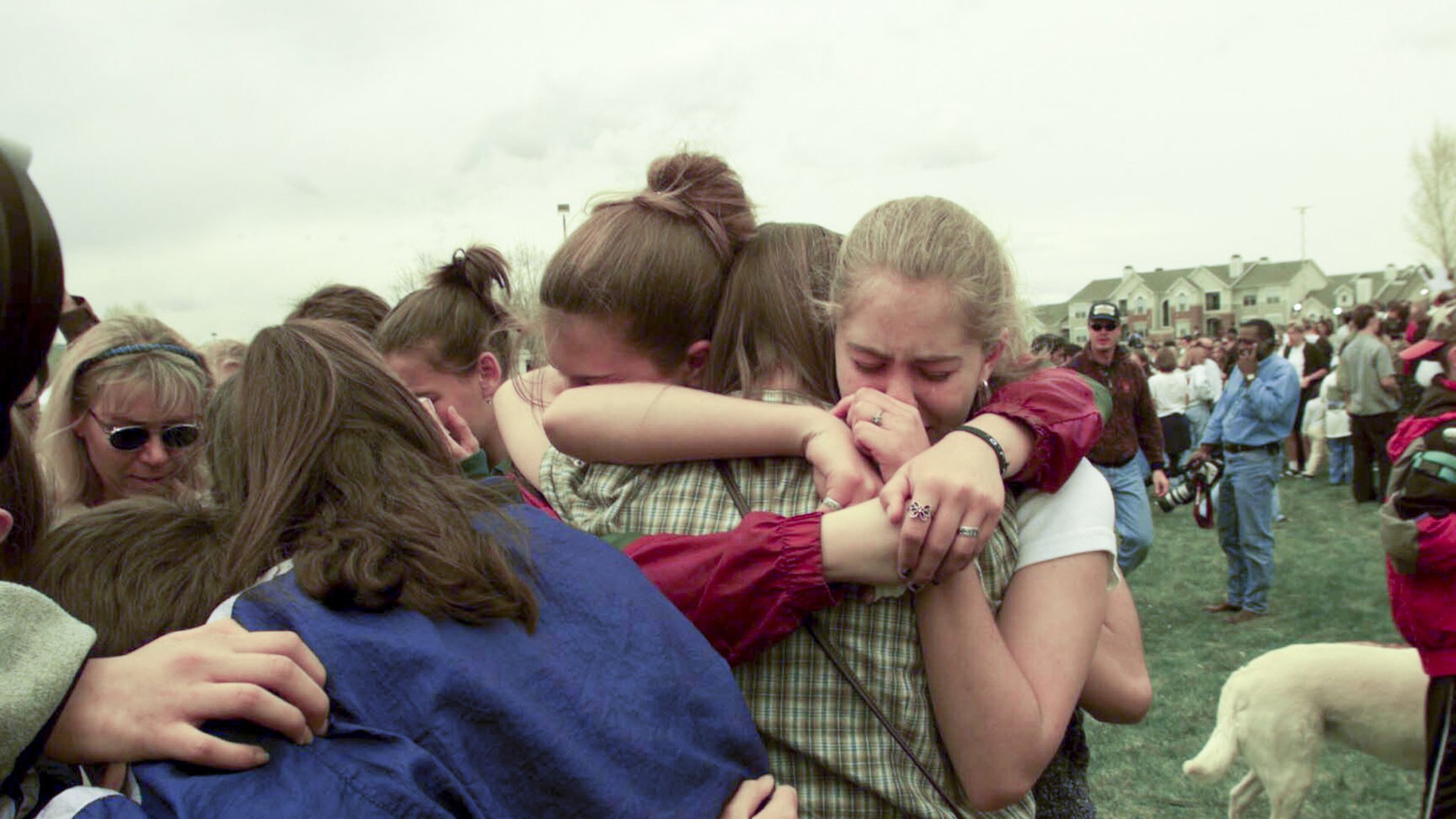19 years later, Columbine massacre echoes in Ga. schools

The enhanced security at Atlanta Public Schools’ Daniel McLaughlin Therrell High School for the start of the 1999-2000 school year was nothing to write home about, said Verdaillia Turner, who taught there at the time.
School resource officers roamed the halls more frequently. Then there were the metal detectors, at the old building’s main doors to check each person entering there.
“I know we laughed about those metal detectors,” said Turner, now president of the Georgia Federation of Teachers, the state arm of the American Federation of Teachers, a national teachers union. “People could get into the old buildings too easily. A lot of times, the doors were not guarded, and we had a lot of them. People who didn’t even belong there would come in (through other entrances) after lunch and just run up and down the hallway.”
It was a poor attempt, she said, to reassure staff and students after two teens entered a Colorado high school with plans to emulate Timothy McVeigh’s mass murder in Oklahoma City. Eric Harris and Dylan Klebold planted bombs around Columbine High School in Littleton before arming themselves and storming the school on April 20, 1999, killing 13 and injuring two dozen others before taking their own lives.
In the Columbine massacre's aftermath, schools saw changes including armed school resource officers roaming hallways across the country; metal detectors, and new safety procedures for entering buildings, with visitors being patted down at the front door, or being turned away altogether.
But 19 years to the day after that attack, students of another generation are holding yet another event seeking change after yet another shooting.
“I’ll say it,” Turner said. “The only reason security isn’t that tight is they haven’t had the heart, and will, to do it right. We knew they weren’t serious about security. Tighten the security up like they’ve got it at the Capitol.”
Safety conversations sparked after what was then the worst mass shooting on a K-12 school campus led to security additions that changed the way people saw school.
“The perception before was that this couldn’t happen in my school,” said Lt. Terry Lockard, a Gwinnett County Schools police officer who was working as a school police officer when the Columbine shooting took place. “This opened a dialogue where the need for trained police in schools became a reality.”
Detective Angela Washington of the Fulton County Schools Police Department said Columbine definitely made a difference.
“I was in seventh grade and had never seen a police officer in school ever,” she said. “The next year, they were everywhere.”
At the time, parents of students at Columbine went before lawmakers seeking tougher gun laws as they wondered how two teenagers got their hands on an arsenal that, if their plan had worked as they intended, could have resulted in hundreds more injured and dead.
The February 14 shooting at Marjory Stoneman Douglas High School in Parkland, Fla. — where former student Nicholas Cruz entered the school after setting off a fire alarm, killing 17 and injuring 17 more — has conjured up those same conversations.
In metro Atlanta, Cherokee, Douglas, Forsyth, Fulton, Gwinnett and Henry counties are considering or have budgeted for additional school resource officers in their upcoming budgets. Forsyth County also has recommended adding six “social emotional learning” positions to work with high-risk students. DeKalb County School District officials said the district has plans in the 2018-2019 budget for 10 additional school resource officers to be hired, but those plans have been discussed since the fall, part of the district’s continued attention to its safety protocols.
Mo Canady, executive director of the National Association of School Resource Officers, said as the nation distanced itself from Columbine, the conversation got lost over time.
“We were having the same conversations, but just on a different level and in a different way,” said Canady, a former school resource officer in Hoover Ala. “If tomorrow, God forbid, there’s another 9/11, I think the same conversations (that happened then) would be happening again. I think when our conscience is shaken by something, it’s putting things in place.
“It’s easy to lose sight and kind of forget about the pain and to not be as focused as we should.”
Canady said a lot of the extra manpower at schools from the time immediately following the Columbine attack came through grants that paid salaries for law enforcement officers placed in schools. As those grants ended, he said, many departments could not find the money in their budgets to keep the additional staff.
Turner, the state teacher’s union president, cited another shift. She said students are being put in more danger as school districts continue moving away from a neighborhood-school structure, where teachers would have more time cultivating a relationship with a family as the different children from each family would rise through the ranks.
“We knew our students,” she said. “I didn’t feel any different. We’d been in a war zone forever. But we never saw African-American students who were wholesale killing people in the schools. We could talk to some of the needy ones, when we knew who they were. We developed relationships because the staff wasn’t moved around as much as they are now. And they wanted to teach.
“Those relationships are not as strong anymore.”




